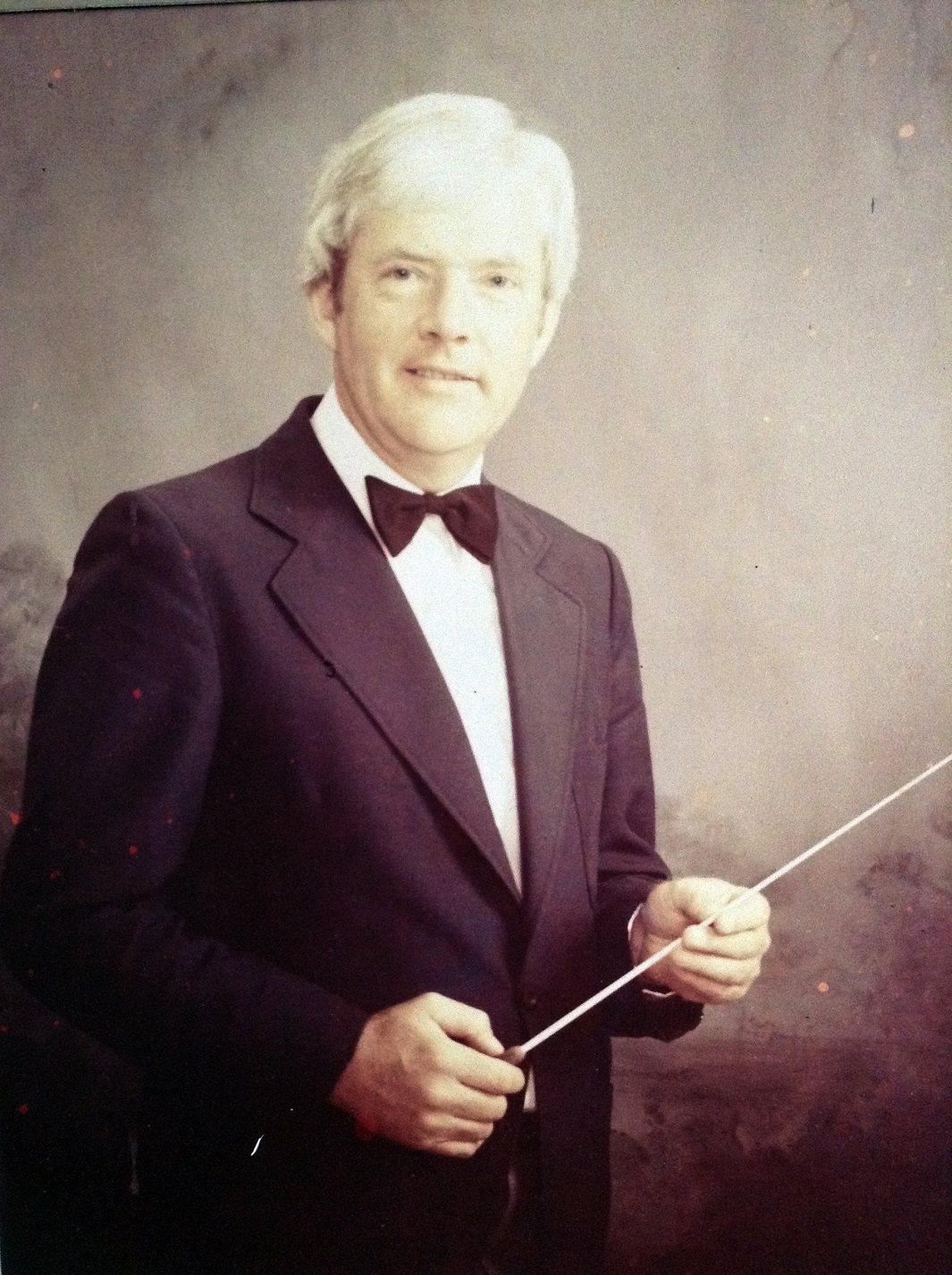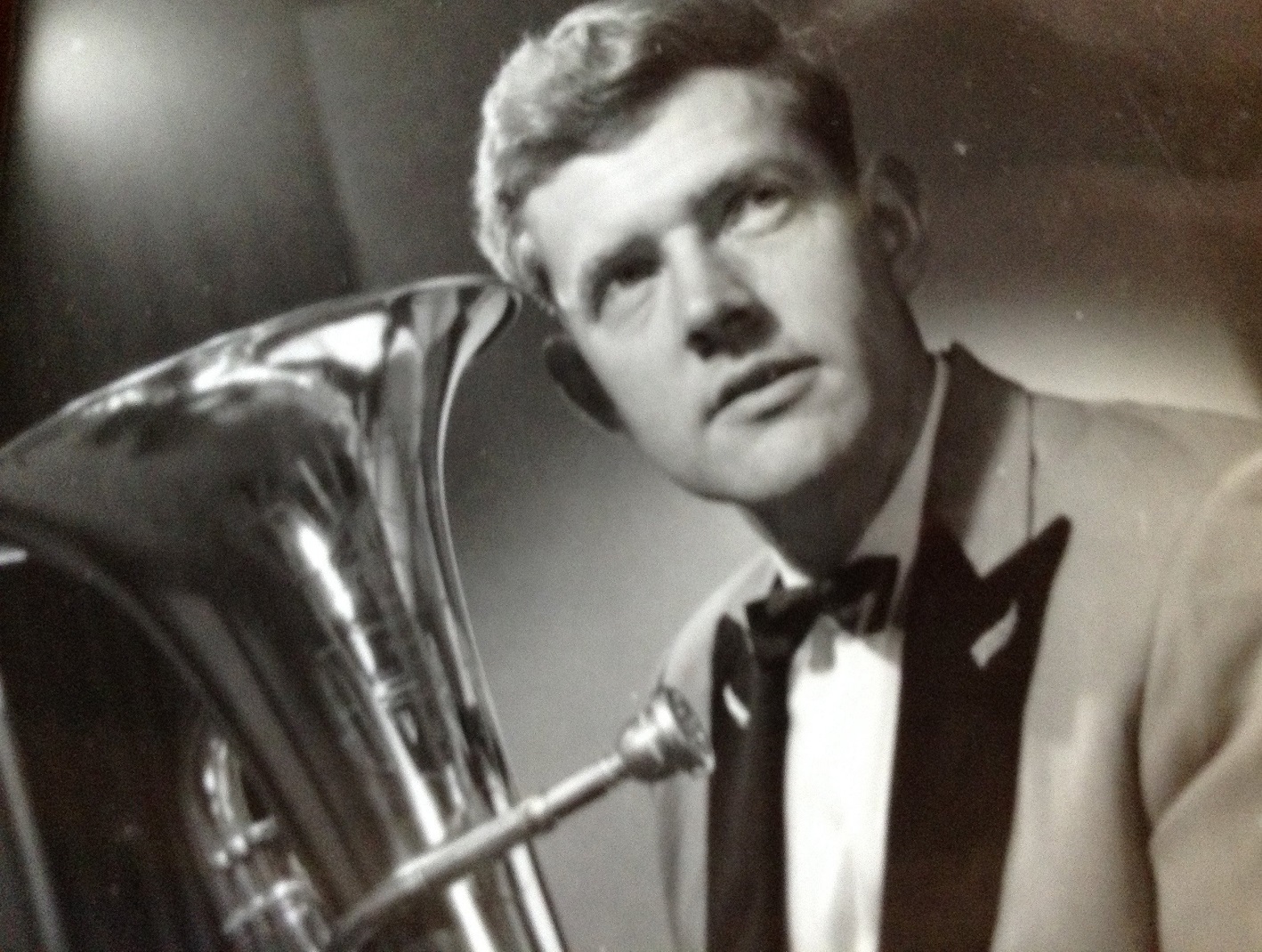
Rodney Sutton was a perfectionist.
As a musician, businessman and even gardener, Mr Sutton was known for his attention to detail, thoroughness and dedication.
When he was made a life member of the Brass Bands Association of New Zealand in 2015 he said practising and rehearsals had never been a chore for him.
His daughter Barbara Sutton-Adams said he spent many hours perfecting his craft because he did not like making any mistakes.
"Everything he did, he wanted it done correctly."
The Southland man became one of New Zealand’s greatest euphonium players, earning an MBE for his services to music in 1982.
Mr Sutton had an early introduction to music, being born into a musical family in 1935 in Invercargill. His mother was a very good piano, viola and cello player and his two sisters also played piano and sang.
Mr Sutton began his musical journey as a boy soprano and tried a variety of different instruments including the bugle and the side drum.
He eventually landed on the euphonium after the then Invercargill Garrison Band musical director Claude Miller suggested that he start playing it in 1950.
It only took him three years to win his first national open euphonium championship in 1953 before his 18th birthday.
He went on to win that title 12 more times.
Mr Sutton played euphonium in three National Bands of New Zealand in 1962, 1965, and 1967.
In 1962 he received high praise for his stand-up solo performance while playing an arrangement by Norman Henstridge of Mozart’s Bassoon Concerto.
A critic from the magazine British Bandsman said he had "nothing to learn in [New Zealand]".

"No euphonium player, be he soloist or aspirant, should miss the opportunity of hearing this exponent of euphonium playing."
That tour led to Mr Sutton receiving an invitation from the Munn & Felton’s Works Band because its principal euphonium player Bert Sullivan was retiring.
However, Mr Sutton declined so he could stay in Southland and help his father Henry Ellis Sutton with his business selling farm machinery and supplies.
His son David Sutton said that decision spoke to his father’s character as a dedicated family man: he did not want to leave his parents on their own as they got older. Mr Sutton eventually became the managing director of the family business, which evolved into real-estate firm Ray White Invercargill.
Mr Sutton said his father was very involved in training new agents like he was in training younger band members.
He said he was a very humble man who never bragged, despite his many achievements. He spent the last eight years of his life writing about the history of the Invercargill Garrison Band, A Blast from the Past.
Mr Sutton said his father seldom mentioned himself in the book despite his enormous contribution to its history.
"He would have been very proud to deliver the final draft of the book before he died."
Mr Sutton’s favourite hobbies aside from working with the band were golfing and boating. Te Anau was his favourite place and he loved going on fishing trips there.
Although he spent less time practising playing the euphonium as he got older, he spent more time with the band conducting and helping others coming up.
Mr Sutton was appointed musical director of the Invercargill Garrison Band in 1969, which won the B-grade national championship in 1970 and the A-Grade national championship in 1973.
That was the first time since 1959 a band outside of the four main centres had won an A-Grade championship and the last time since.
In 1980 he became the musical director of the National Band of New Zealand. Mr Sutton was selected over seven other applicants and he led the band on a successful tour of the United States, receiving multiple standing ovations.
He was the first choice for tenor tuba in the New Zealand Symphony Orchestra when they needed one in his playing years.
Mr Sutton died last year on November 24 aged 89. — Mark John











